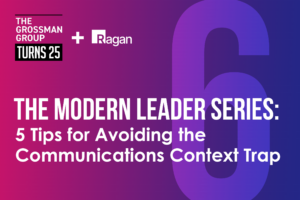UnitedHealthcare CEO’s death could change corporate comms
It’s important for executives to talk, but it’s just as important that it’s on the right issue.

The death of UnitedHealthcare CEO Brian Thompson sent shockwaves through the corporate world, raising questions about executive security and leaders’ role as the public face of their organization.
Investigators reportedly found the words “deny,” “defend” and “depose” – phrasing used by insurance industry critics – emblazoned on ammunition used in the shooting.
“The suspect knew where Thompson was,” said Anthony D’Angelo, a communications professor at Syracuse University. “Executives are vulnerable when they are predictably in the public eye.”
Companies such as Centene have opted for virtual meetings to reduce physical appearances, but many still value having direct engagement with employees and stakeholders.
Ultimately, D’Angelo, doesn’t think executives will fade into the background in the wake of the violent death.
“They’re the face of the company,” he said. “There’s extreme value in them speaking on behalf of the company and what it represents.”
But D’Angelo does foresee a change in what they might say.
“What the UnitedHealthcare situation has done is shine a light on the danger of being a public figure,” he said. “Executives will be more conscientious about what they say and how they say it.”
Reassessing executive security
Ray Day recalls working for two Fortune 100 companies; the CEO and all senior leadership were constant recipients of messages “very happy customers and very unhappy customers.”
“I received phone calls, I received emails. I had people show up at my office and let me know how they felt good or bad about a company,” Day said. “It’s all part of being in the public eye.”
Day, vice chair of Stagwell and executive chair of Allison Worldwide, suggests that comms teams can help by engaging in more proactive social listening, which he calls “anticipatory listening.” That process involves watching broader trends, not just current hot-button issues, to try to figure out what may turn into an issue down the road.
Those things can range from issues affecting competitors and the financial market to things happening vendors that could impact your operations.
A key to this process, Day said, is not to do it alone. Always look for outside intel or support, whether it’s an agency or another department.
“In a big company, you can sometimes get so involved in your operations that you lose touch with what the outside world,” said Day, the 2025 PRSA chair.
Executives can use that intel to better understand public sentiment and consumer trends and then developing comms or operations strategies to address it, said Day.
“CEOs need to be ready to address issues before they become bigger problems,” he added.
The decline of performative statements
D’Angelo warned that Thompson’s death could lead to a pullback in CEOs speaking out on societal issues, especially when there’s no immediate action behind the statements. However, there is no reason to believe that any particular statements Thompson made were motives for his killing.
“It’s not about making vapid statements. It’s about taking concrete actions,” D’Angelo said.
D’Angelo pointed out that companies who issue statements without follow-through risk being seen as performative, which can alienate both customers and employees.
“There’s a real risk that organizations and CEOs are just paying lip service to issues, and that angers people,” he said.
A recent example D’Angelo provided was All-State CEO Tom Wilson’s televised comments during the Sugar Bowl in New Orleans, which took place shortly after a terrorist attack. During the recorded comments, Wilson called for Americans to “overcome divisiveness,” which received wide-ranging criticism on social media for lacking tangible action.
“The comment didn’t add value,” D’Angelo said. “People don’t want to see you. They want to see action.”
The leader of UnitedHealth Group, the parent company of UnitedHealthcare, authored an op-ed published in The New York Times shortly following Thompson’s passing.
While CEO Andrew Witty aimed to honor his friend and promise to work to help fix the healthcare system, the piece resonated as “hollow,” as one person wrote. The piece didn’t offer any true pathways to achieve those goals other than suggesting a “willingness to partner with anyone” to make the system work better.
D’Angelo’s advice to executives and their communication teams is clear: “Speak thoughtfully, act decisively and ensure your actions match your words.”
Unpopular industries should ask these questions
D’Angelo said that executives in what might be an unpopular industry should ask themselves a handful of fundamental questions about their strategies:
- Who are the target publics we rely on for our existence and what is important to them?
- What do they want from us in terms of concrete deliverables, and how should we deliver them to enhance the relationship?
- What do they think of us now? Do we know this through research or are we speculating?
- Are we taking actions that authentically represent who we are and what our mission is?
- Are we making performative statements about what we wish we were, or how we wish to be perceived?
“Organizations should embrace the former and avoid the latter,” D’Angelo said.
Casey Weldon is a reporter for PR Daily. Follow him on LinkedIn.







